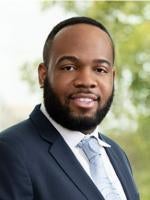Gender identity has been an issue of intense debate over the past couple of years. Courts are still grappling with the U.S. Supreme Court’s decision in Bostock v Clayton County, 140 S. Ct. 1731 (2020), which held that the 1964 Civil Rights Act protects gay, lesbian and transgender employees from discrimination based on sex. Although it has been two years since Bostock, public and private universities are continuing to reform their discrimination policies to comply with this new law. In Meriwether v. Hartop, 992 F.3D 492 (6th Cir. 2021), the Sixth Circuit Court of Appeals determined whether a university professor who refuses to use transgender pronouns is afforded First Amendment protections.
Background
Nicholas Meriwether was a philosophy professor at Shawnee State University. At the start of the 2016 school year, the university emailed faculty informing them they had to refer to students by preferred pronouns; professors who refused would be disciplined.
One day Meriwether referred to a student, Jane Doe, as sir instead of using a feminine pronoun. According to Meriwether, no one would assume Doe was a female based on Doe’s outward appearance. Doe demanded that Meriwether use feminine pronouns when he addressed her. Meriwether believed his religious beliefs “prevented him from communicating messages about gender identity that he believes are false.”
He reported the incident to senior university officials, and the Acting Dean of the College of Arts and Sciences met with him. The Dean advised Meriwether to stop using all sex-based references in his class. In response, Meriwether stated he would refer to most of the students using pronouns and refer to Doe by her name. The Dean accepted the compromise.
Doe remained unsatisfied and complained to university officials. The Dean informed Meriwether that if he did not address Doe as a woman, he would be violating the university’s policy. Meriwether accidently referred to Doe as sir on another occasion. Doe reported the incident to the university’s Title IX Coordinator, and Meriwether met with the Dean again. He offered a second compromise. He asked whether he could use preferred pronouns but place a disclaimer in his syllabus “noting that he was doing so under compulsion and setting forth his personal and religious beliefs about gender identity.” His compromise was rejected.
Doe complained again, and a Title IX investigation ensued. The investigation concluded that “Meriwether’s disparate treatment [of Doe] [had] created a hostile environment.” The Dean later brought a “formal charge” against Meriwether under the collective bargaining agreement. The Dean also recommended placing a formal warning in his file. The Provost approved the Dean’s request even though Meriwether maintained that he began referring to Doe without pronouns and used Doe’s last name as an accommodation. The Provost’s decision remained unchanged.
Merriweather grieved the discipline but was unsuccessful. Left with no other option, he filed suit alleging several claims, including a free speech claim. The district court dismissed his lawsuit, so Meriwether appealed.
Sixth Circuit Appeal
The Sixth Circuit first addressed Meriwether’s free speech claim and held the First Amendment protects the academic speech of university professors. In reaching its decision, the court looked to the U.S. Supreme Court’s ruling in Garcetti v. Ceballos, 547 U.S. 410 (2006). There, the Court held that speech by a public official is only protected if it is engaged in as a private citizen – not if it is expressed as part of the official’s public duties. But the Garcetti court did not address speech related to scholarship or teaching. The court decided that prior Supreme Court decisions – not Garcetti – held that professors at public universities retain First Amendment protections when engaged in scholarship and teaching.
In response, the university argued that the court should not apply Supreme Court decisions that preceded Garcetti. The court found this argument unpersuasive because its job is to apply “existing Supreme Court precedent unless it is expressly overruled.”
The university also argued that any academic freedom exception to Garcetti does not apply to Meriwether’s use of titles and pronouns in the classroom. The court rejected this argument. The court opined that gender identity is a matter of public concern and often arises in classroom discussions. Silencing Merriweather’s viewpoint on the matter halted potential robust and insightful in-class discussions. The court concluded:
Thus, the academic-freedom exception to Garcetti covers all classroom speech related to matters of public concern, whether that speech is germane to the contents of the lecture or not. The need for the free exchange of ideas in the college classroom is unlike that in other public workplace settings.
Next, the court had to determine whether Meriwether plausibly alleged his in-class speech was protected by the First Amendment. This analysis posits two questions: (1) was Meriwether speaking on “a matter of public concern” and (2) was his interest in doing so greater than the university’s interest in “promoting the efficiency of the public services it performs through” him?
The court held that Meriwether spoke on a matter of public concern because his speech involved gender identity, which has been the recent contention of many passionate political and social debates.
Conclusions of the Court
Determining whether this interest outweighed the university’s interest in promoting the efficiency of public services was a taller task. Nonetheless, the court concluded it was. Academic freedom is paramount to the First Amendment, the court said, and that was especially the case here given that Meriwether spoke on a matter of public concern.
The university argued that it has a compelling interest in stopping discrimination against transgender students. But the court rejected this argument because the government does not always have a compelling interest in regulating employees’ speech on matters of public concern. If it did, the analysis is left meaningless. The court went on:
A school’s interest in limiting a teacher’s speech is not great when those public statements are neither shown nor can be presumed to have in any way either impeded the teacher’s proper performance of his daily duties in the classroom or to have interfered with the regular operation of the schools generally.




 />i
/>i
